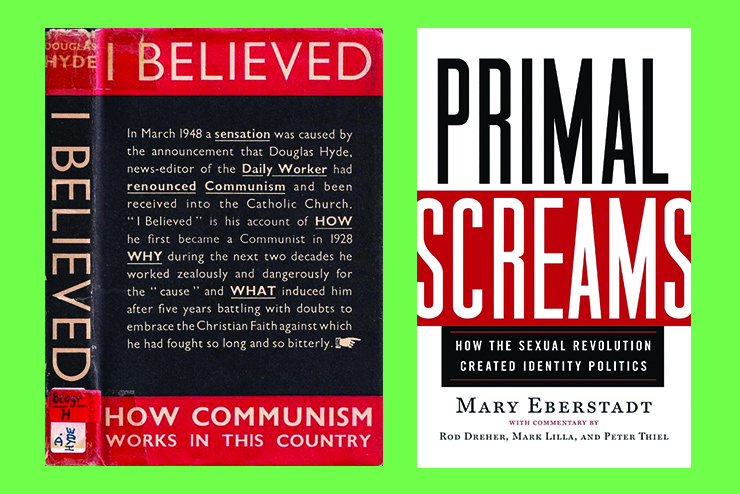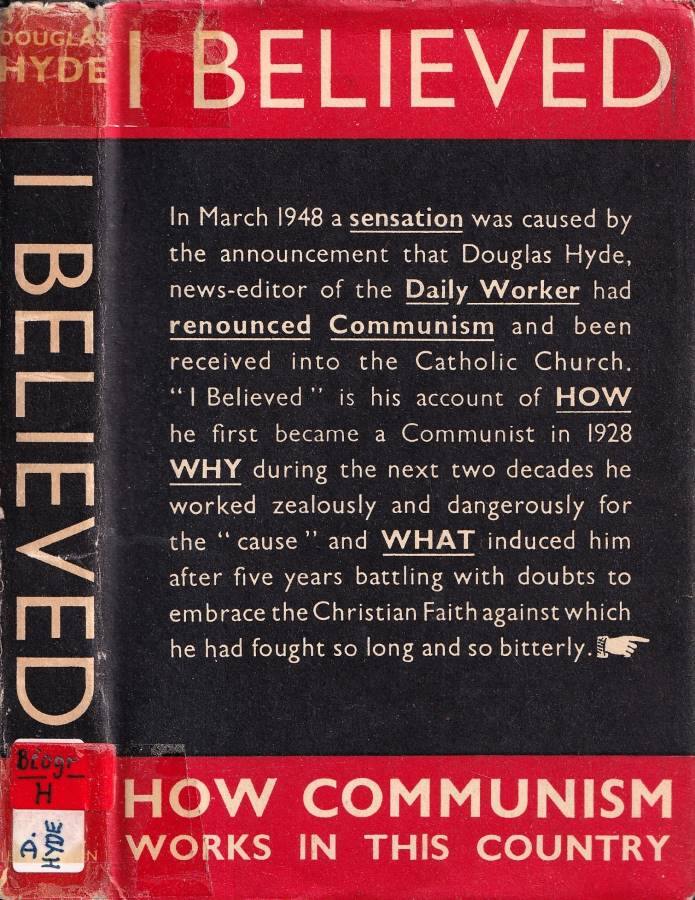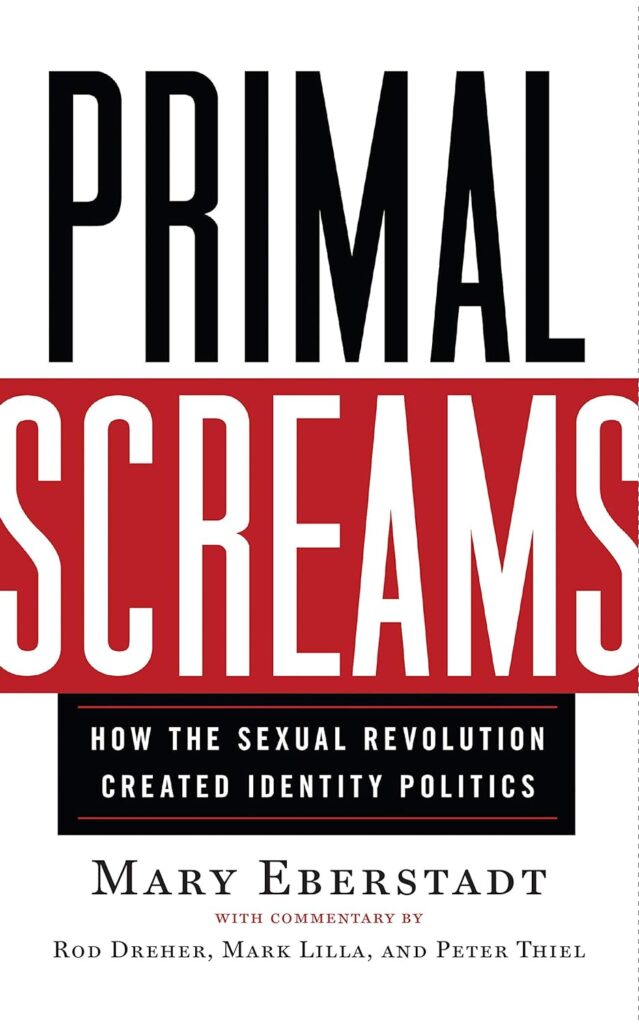Douglas Hyde was a leading figure in Britain’s Communist Party. After two decades, he repudiated communism and became a Catholic. I Believed (1950) is his autobiography.
Hyde came from a Methodist family and intended to enter the ministry. However, his concern for the poor led him to Communist front organizations and then into the party itself. He quickly succumbed to the party’s dogmatic atheism.
The Communists had initially been open about their violent revolutionary aims. But the rise to power of Hitler in Germany and the overnight destruction of the once mighty German Communist Party led to a fundamental change of tactics. The Communists now decided to ally themselves with mainstream political groups in a Popular Front to fight fascism. The culmination of the Popular Front strategy was the Spanish Civil War, in which the Communists organized the British Battalion of the International Brigade.
Though many joined willingly, when extra cannon fodder was needed party members would scour London for homeless men, who they would get drunk and then ship over the channel. Hyde said they were kept drunk until they crossed the Pyrenees, where upon sobering up they found themselves members of the International Brigade.
The Communist Party had been eager for war with Germany, but the 1939 Nazi-Soviet Pact changed everything. The party’s British branch was now told it must work for Britain’s defeat. When Hitler invaded the Soviet Union, the party flip-flopped again, becoming an enthusiastic supporter of the British war effort. Communism became fashionable in Britain overnight. City councils organized “Anglo-Soviet Weeks.” Communists marched holding aloft pictures of Churchill, and even Conservative politicians campaigned alongside pictures of Stalin. The British Communist Party achieved its greatest support in the last days of the war, winning two parliamentary seats in the 1945 general election.
As the Soviets attempted to sabotage Britain’s postwar recovery, Hyde’s Marxist faith began to falter. He was tasked with reading the Catholic press in order to refute it, but, unable to rebut the truth of its arguments against communism, he was converted instead. His interest in medieval churches, his love of Chaucer and Langland, and his reading of Chesterton and Belloc beckoned him towards Rome.
Like Whittaker Chambers‘ Witness, I Believed is valuable both as an insider’s account of Communist subversion, and an inspiring story of spiritual conversion.
—Piers Shepherd
I heard a scholar opine that the chief goal of American family policy should be to create a culture in which every adult cares equally about the welfare of every child. Apparently the good professor didn’t know enough about human nature to realize that such a goal is unreachable. We can desire and even contribute significantly to care for the children of others, of course. But we inevitably feel that motivation much more strongly for our own children. No policy goal can engineer away that sentiment.
In Primal Screams (2019), Mary Eberstadt describes how our country’s elites have forgotten that the love of those closest to us is deeply rooted in human nature. Their attempt to make this love more equitable has produced the alienated and vindictive rage of identity politics. The primal screams of America’s culture wars are the destructive consequences of a cultural revolution that has poured acid over the familial structures that hold society together.
In what Eberstadt dubs “The Great Scattering,” revolutionaries worked to disintegrate familial and community institutions and practices that provided buffers against isolation. They presumed, against all evidence, that men and women were interchangeable creatures who should be encouraged to act as hedonistic individual pleasure seekers in their relationships.
The excesses of #MeToo come from this culture of sexual license, which created fewer men who could be trusted to treat women respectfully. It made men view women as pornographic objects. Women, propagandized into belief in the total sameness of the sexes, failed to learn traditional rules for protecting themselves sexually.
Androgyny and transexuality became another misguided strategic response to this barren sexual landscape. Identity politics, Eberstadt writes, is “the collective howl of our time, sent up by inescapably communal creatures trying desperately to identify their own.”
One small fault is Eberstadt’s claim to be offering “a new theory.” The idea that something cataclysmic has happened to rend existing basic human institutions of mating and family, creating isolated individuals ill-equipped to face social challenges alone, has a long pedigree. Conservative thinkers and honest social scientists have been noting the institutional breakdown and the resultant moral anarchy for at least half a century now.
Yet, even if her views are not entirely novel, Eberstadt’s authorial skill has given us a highly readable summary of the dismal world we have made.
—Alexander Riley



Leave a Reply